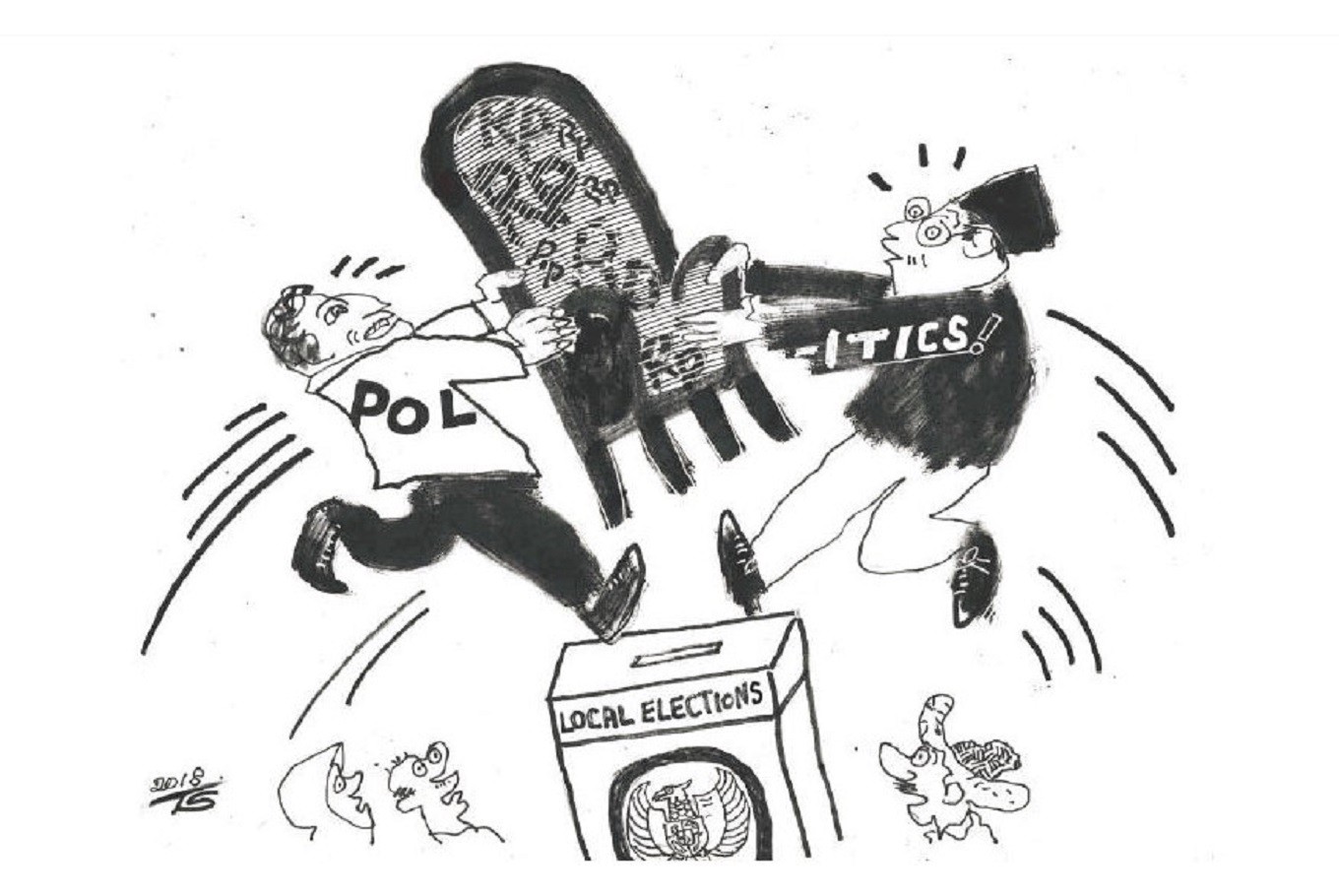Popular Reads
Top Results
Can't find what you're looking for?
View all search resultsPopular Reads
Top Results
Can't find what you're looking for?
View all search resultsThe ultimate prize
There have also been multiple reports that regional elections are bad for the environment.
Change text size
Gift Premium Articles
to Anyone
T
his week marks the final stage of the nationwide regional elections, in which voters will go to polling stations to cast their ballots in more than 170 cities and provinces, including some battleground regions.
In the lead-up to the democratic event slated for Wednesday, we are hearing more news that has become more and more familiar: the arrest of regents and mayors accused of corruption. And as antigraft activists have pointed out, these arrests are widely connected to the local elections themselves. Running in an election is an expensive enterprise and a common way for politicians, especially incumbents fighting to stay in office, to get the fast cash needed to finance their campaigns is by siphoning off government funds.
There have also been multiple reports that regional elections are bad for the environment. As incumbents need extra cash to pay for their reelection bids, they can find an easy source of funds by selling access to forests and protected areas to mining companies and oil palm plantations. Numerous cases of these corrupt practices have been well-documented and a number of those involved in these shenanigans have been brought to court.
This, added to the fact that the whole election process is costly and could fuel sectarian tensions in some regions, leaves much to be desired from regional elections.
However, all the drawbacks of the regional elections should not distract us from their greater purpose, which is to provide a reliable mechanism through which voters can elect leaders who will not only govern at the local level but who may soon occupy the highest office in the land.
President Joko “Jokowi” Widodo, a former mayor of Surakarta, has set a template for how politicians should prepare themselves to get elected as president. Before Jokowi, there were other paths that politicians could take to become president: serving as a Cabinet minister and/or having a career in the military. Jokowi’s predecessor, Susilo Bambang Yudhoyono, benefited from having served in both capacities before he was elected into office in 2004.
Today’s voters, however, gravitate toward candidates who have honed their skills as mayors or governors, those who have the skills to deal with real problems at the grassroots level. Jokowi’s experience shows that voters reward politicians who are willing to get down and dirty to solve real everyday problems. In fact, now the position of Jakarta governor is widely seen as a stepping stone to the presidency, which puts Anies Baswedan in an enviable position for future presidential contests.
A number of candidates running in this year’s regional elections, like popular Bandung Mayor Ridwan Kamil or Central Java Governor Ganjar Pranowo, have projected images of themselves as young, reform-minded candidates who promise dynamic leadership at the local level.
It would be disingenuous not to admit that they have their sights set on the country’s top job. Today, it is a governor position, tomorrow the presidency. If they prove themselves trustworthy with the small things today, someday they could be entrusted with the big things.










